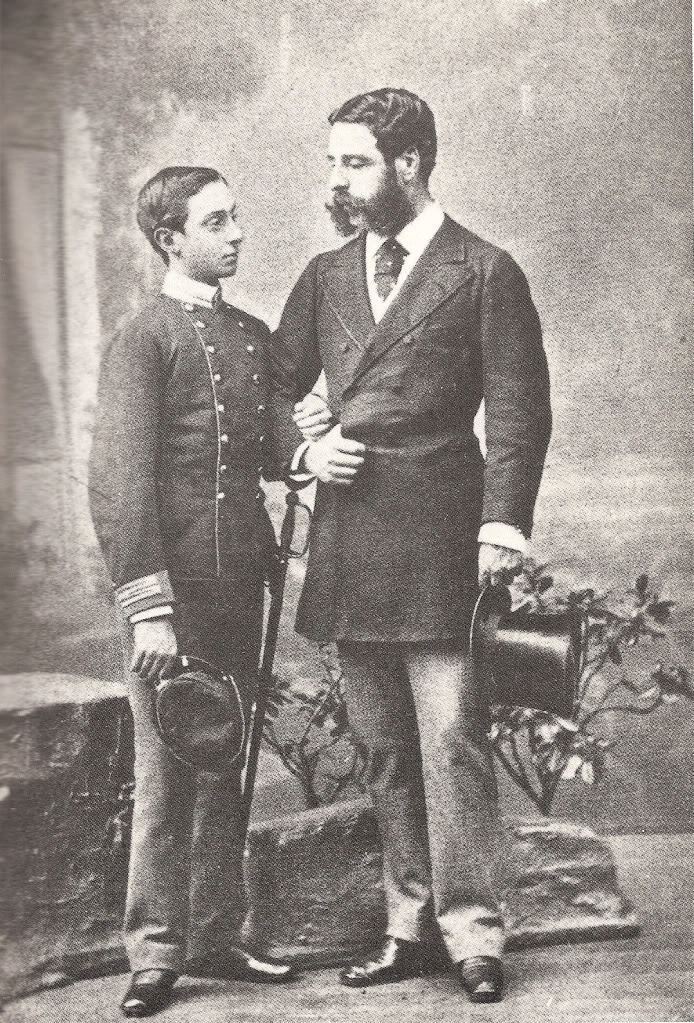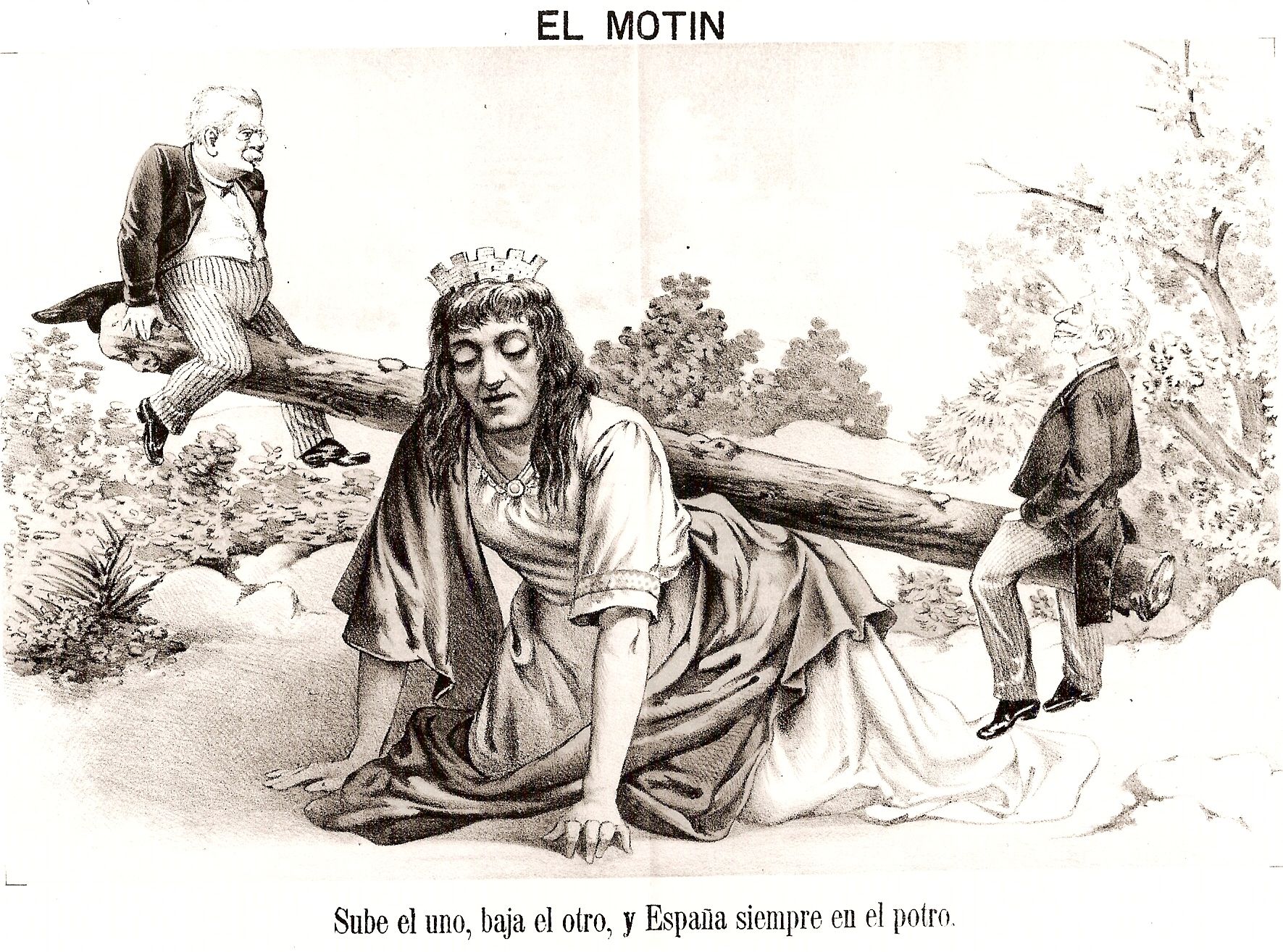|
1879 In Spain
Events in the year 1879 in Spain. Incumbents *Monarch: Alfonso XII *Prime Minister: Antonio Cánovas del Castillo Events *April 20 - Spanish general election, 1879 Births *February 20 - Pedro Muñoz Seca *August 14 - Marcelino Valentín Gamazo *November 14 - Antonio Escobar Huertas Antonio Escobar Huerta (14 November 1879 – 8 February 1940) was a Spanish military officer. Biography Escobar was a Catholic and a conservative. At the outbreak of the Spanish Civil War, he was a colonel of the Spanish Civil Guard in the cit ... Deaths * Juan de Zavala, 1st Marquis of Sierra Bullones References {{Year in Europe, 1879 1870s in Spain ... [...More Info...] [...Related Items...] OR: [Wikipedia] [Google] [Baidu] |
Spain
Spain, or the Kingdom of Spain, is a country in Southern Europe, Southern and Western Europe with territories in North Africa. Featuring the Punta de Tarifa, southernmost point of continental Europe, it is the largest country in Southern Europe and the fourth-most populous European Union member state. Spanning across the majority of the Iberian Peninsula, its territory also includes the Canary Islands, in the Eastern Atlantic Ocean, the Balearic Islands, in the Western Mediterranean Sea, and the Autonomous communities of Spain#Autonomous cities, autonomous cities of Ceuta and Melilla, in mainland Africa. Peninsular Spain is bordered to the north by France, Andorra, and the Bay of Biscay; to the east and south by the Mediterranean Sea and Gibraltar; and to the west by Portugal and the Atlantic Ocean. Spain's capital and List of largest cities in Spain, largest city is Madrid, and other major List of metropolitan areas in Spain, urban areas include Barcelona, Valencia, Seville, ... [...More Info...] [...Related Items...] OR: [Wikipedia] [Google] [Baidu] |
Alfonso XII
Alfonso XII (Alfonso Francisco de Asís Fernando Pío Juan María de la Concepción Gregorio Pelayo de Borbón y Borbón; 28 November 185725 November 1885), also known as ''El Pacificador'' (Spanish: the Peacemaker), was King of Spain from 29 December 1874 to his death in 1885. After the Glorious Revolution (Spain), Glorious Revolution of 1868 deposed his mother Isabella II from the throne, Alfonso studied in Austria and France. His mother abdicated in his favour in 1870, and he returned to Spain as king in 1874 following a military coup against the First Spanish Republic. Alfonso died aged 27 in 1885, leaving his pregnant widow, Maria Christina of Austria, as regent of Spain. Their son, Alfonso XIII, became king upon his birth the following year. Maria Christina continued as regent until Alfonso XIII came of age in 1902. Paternity, early life, and exile Alfonso was born in Madrid as the eldest son of the reigning Queen Isabella II of Spain, Isabella II on 28 November 1857. His ... [...More Info...] [...Related Items...] OR: [Wikipedia] [Google] [Baidu] |
Prime Minister Of Spain
The prime minister of Spain, officially president of the Government (), is the head of government of Spain. The prime minister nominates the Spanish government departments, ministers and chairs the Council of Ministers (Spain), Council of Ministers. In this sense, the prime minister establishes the Government of Spain, Government policies and coordinates the actions of the Cabinet members. As chief executive, the prime minister also advises the Monarchy of Spain, monarch on the exercise of their royal prerogatives. Although it is not possible to determine when the position actually originated, the office of prime minister evolved throughout history to what it is today. The role of prime minister (then called Secretary of State) as president of the Council of Ministers, first appears in a royal decree of 1824 by King Ferdinand VII of Spain, Ferdinand VII. The current office was established during the reign of Juan Carlos I, in the Constitution of Spain, 1978 Constitution, which ... [...More Info...] [...Related Items...] OR: [Wikipedia] [Google] [Baidu] |
Antonio Cánovas Del Castillo
Antonio Cánovas del Castillo (8 February 18288 August 1897) was a Spanish people, Spanish politician and historian known principally for serving six terms as Spanish Prime Minister, prime minister and his overarching role as "architect" of the regime that ensued with the Restoration (Spain), 1874 restoration of the Bourbon monarchy. He was assassinated by Italian Anarchism, anarchist Michele Angiolillo. As leader of the Conservative Party (Spain), Liberal-Conservative Party—also known more simply as the Conservative Party—the name of Cánovas became symbolic of the alternate succession in the Restoration regime along with Práxedes Mateo Sagasta's. Early career Born in Málaga as the son of Antonio Cánovas García and Juana del Castillo y Estébanez, Cánovas moved to Madrid after the death of his father where he lived with his mother's cousin, the writer Serafín Estébanez Calderón. Although he studied law at the Complutense University of Madrid, University of Madrid ... [...More Info...] [...Related Items...] OR: [Wikipedia] [Google] [Baidu] |
Spanish General Election, 1879
Spanish might refer to: * Items from or related to Spain: **Spaniards are a nation and ethnic group indigenous to Spain **Spanish language, spoken in Spain and many countries in the Americas **Spanish cuisine ** Spanish history **Spanish culture **Languages of Spain, the various languages in Spain Other places * Spanish, Ontario, Canada * Spanish River (other), the name of several rivers * Spanish Town, Jamaica Other uses * John J. Spanish (1922–2019), American politician * "Spanish" (song), a single by Craig David, 2003 See also * * * Español (other) * Spain (other) * España (other) * Espanola (other) * Hispania, the Roman and Greek name for the Iberian Peninsula * Hispanic, the people, nations, and cultures that have a historical link to Spain * Hispanic (other) * Hispanism * Spain (other) * National and regional identity in Spain * Culture of Spain The culture of Spain is influenced by its Western ... [...More Info...] [...Related Items...] OR: [Wikipedia] [Google] [Baidu] |
Pedro Muñoz Seca
Pedro Muñoz Seca (20 February 1879 – 28 November 1936 ) was a Spanish comic playwright. He was one of the most successful playwrights of his era. He wrote approximately 300 dramatic works, both '' sainetes'' (short vignettes) and longer plays, often in collaboration with Pedro Pérez Fernández or Enrique García Álvarez... His most ambitious and best known play is ''La venganza de Don Mendo'' (Don Mendo's Revenge, 1918); other major works include ''La barba de Carrillo'' (''Carrillo's Beard'', 1918) and ''Pepe Conde'' (1920). Early life and career Muñoz Seca was born into a large family in El Puerto de Santa María, Cadiz, Spain, on 20 February 1879. (Because Muñoz Seca loved palindromic numbers, however, he often claimed that he was born in 1881. He also claimed to have been born at 10:15 pm, "the normal time for shows to start".) Muñoz Seca attended primary school at the Jesuit school of San Luis Gonzaga in El Puerto de Santa María. He then moved to Seville to st ... [...More Info...] [...Related Items...] OR: [Wikipedia] [Google] [Baidu] |
Marcelino Valentín Gamazo
Marcelino Valentín Gamazo (14 August 1879 – 6 August 1936) was a Spanish lawyer, Secretary of the Bar Association of Madrid on three occasions, Dean of the lawyers of the State and the 64th Attorney General of Spain, serving from November to December 1935. He was born in Rubielos Altos on 14 August 1879 and died in El Cerrajón on 6 August 1936. He tried unsuccessfully to condemn the socialist leader, Francisco Largo Caballero, as head of the 1934 Revolution. He was murdered at the beginning of the Civil War. He was murdered by militias of the PSOE after they murdered his three sons in front of him. Career Gamazo was appointed by Niceto Alcalá Zamora as Attorney General of the Republic on Saturday 16 November 1935, proposed by the Ministry of Justice. He took office on Tuesday 19 November. His most notable case was the charge undertaken by the Supreme Court against the socialist leader Francisco Largo Caballero Francisco Largo Caballero (15 October 1869 – 23 March 1946) ... [...More Info...] [...Related Items...] OR: [Wikipedia] [Google] [Baidu] |
Antonio Escobar Huertas
Antonio Escobar Huerta (14 November 1879 – 8 February 1940) was a Spanish military officer. Biography Escobar was a Catholic and a conservative. At the outbreak of the Spanish Civil War, he was a colonel of the Spanish Civil Guard in the city of Barcelona. He remained loyal to the republican government and on 19 July with his 800 men aided decisively to the defeat of the ''coup'' in Barcelona. Later he was promoted to General, and in January 1939, he led the Republican forces in the failed Valsequillo Offensive. On 16 February 1939, he was one of the officers who said to the Prime Minister Juan Negrín that further military resistance was impossible. In March 1939, he was the commander of the Extremadura Army, supported Casado's coup and crushed the Communist resistance in Ciudad Real Ciudad Real (, ) is a municipality of Spain located in the autonomous community of Castile–La Mancha, capital of the province of Ciudad Real. It is the 5th most populated municipality i ... [...More Info...] [...Related Items...] OR: [Wikipedia] [Google] [Baidu] |
Juan De Zavala, 1st Marquis Of Sierra Bullones
''Juan'' is a given name, the Spanish and Manx versions of ''John''. The name is of Hebrew origin and has the meaning "God has been gracious." It is very common in Spain and in other Spanish-speaking countries around the world and in the Philippines, and also in the Isle of Man (pronounced differently). The name is becoming popular around the world and can be pronounced differently according that region. In Spanish, the diminutive form (equivalent to ''Johnny'') is , with feminine form (comparable to ''Jane'', ''Joan'', or ''Joanna'') , and feminine diminutive (equivalent to ''Janet'', ''Janey'', ''Joanie'', etc.). Chinese terms * ( or 娟, 隽) 'beautiful, graceful' is a common given name for Chinese women. * () The Chinese character 卷, which in Mandarin is almost homophonic with the characters for the female name, is a division of a traditional Chinese manuscript or book and can be translated as 'fascicle', 'scroll', 'chapter', or 'volume'. Notable people * Juan (fo ... [...More Info...] [...Related Items...] OR: [Wikipedia] [Google] [Baidu] |
1879 In Spain
Events in the year 1879 in Spain. Incumbents *Monarch: Alfonso XII *Prime Minister: Antonio Cánovas del Castillo Events *April 20 - Spanish general election, 1879 Births *February 20 - Pedro Muñoz Seca *August 14 - Marcelino Valentín Gamazo *November 14 - Antonio Escobar Huertas Antonio Escobar Huerta (14 November 1879 – 8 February 1940) was a Spanish military officer. Biography Escobar was a Catholic and a conservative. At the outbreak of the Spanish Civil War, he was a colonel of the Spanish Civil Guard in the cit ... Deaths * Juan de Zavala, 1st Marquis of Sierra Bullones References {{Year in Europe, 1879 1870s in Spain ... [...More Info...] [...Related Items...] OR: [Wikipedia] [Google] [Baidu] |

